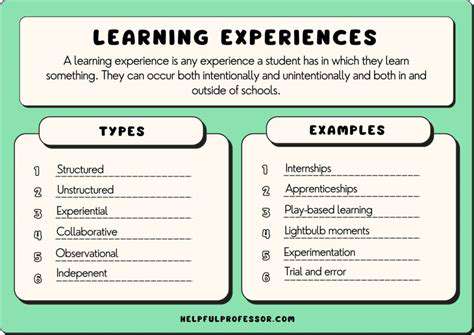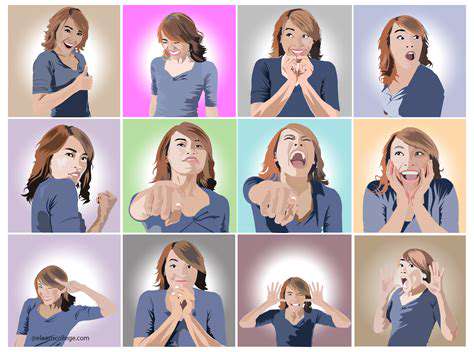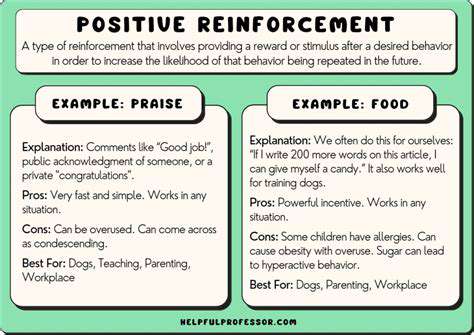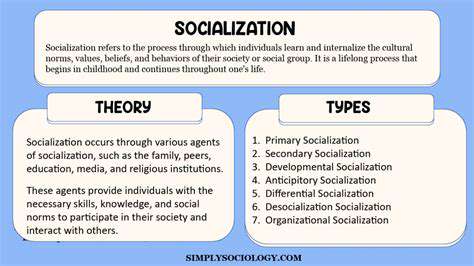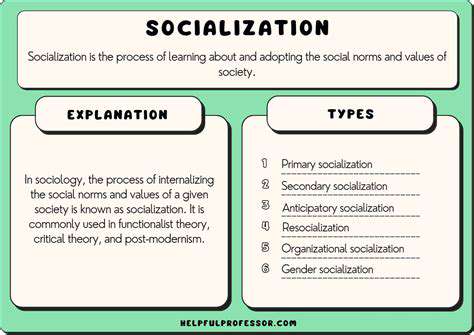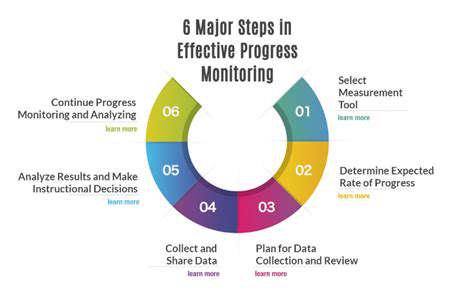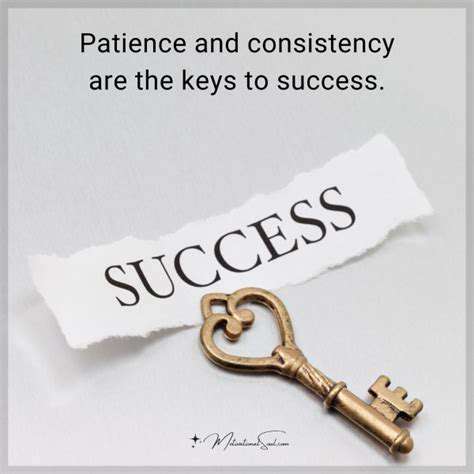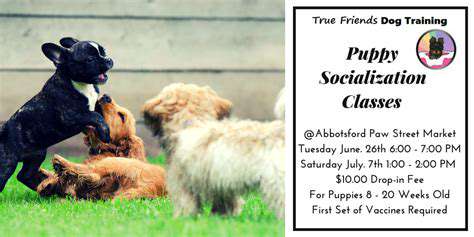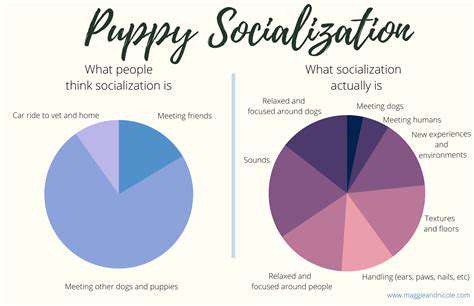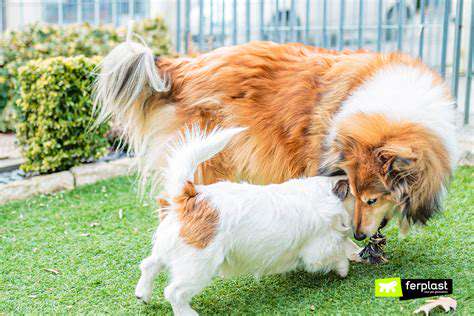Making Socialization Fun: Games and Activities for Your Puppy
Index
Socialization is vital for puppies' behavior and development.
Choose playmates of similar size and energy to foster positive interactions.
Engaging activities during playdates enhance social skills and bonding.
Monitoring interactions ensures safe and enjoyable playdates for puppies.
Early puppy training reduces future behavioral issues, promoting confidence.
Puppy classes include structured obedience and socialization exercises.
Trainer credentials and class size enhance the learning experience.
Socialization techniques improve adaptability and reduce anxiety in puppies.
Prepare for outdoor adventures by selecting safe, suitable locations.
Engage in bonding activities during outdoor adventures for puppies' well-being.
Pack essentials to ensure a successful outdoor day with your puppy.
Understanding a puppy's senses can enhance their training and socialization.
Daily routines offer excellent opportunities for socialization and confidence-building.
Integrating socialization into walks exposes puppies to diverse stimuli.
Positive reinforcement nurtures desired behaviors during puppy interactions.
Games enhance play while promoting socialization and bonding with puppies.
1. Interactive Playdates: Building Bonds
Understanding the Importance of Socialization
Socialization is a Crucial Aspect of canine development that impacts a puppy's behavior and personality. According to the American Kennel Club, properly socialized dogs are generally more well-adjusted, confident, and less likely to develop behavioral issues. Early interactions with different people, animals, and environments teach puppies how to respond to a variety of social scenarios, making it essential to create multiple playdate opportunities.
Not only does socialization foster a healthy temperament, but it also enhances cognitive skills. Research shows that dogs exposed to diverse stimuli are quicker learners than those who are not. For instance, puppies who engage in varied playgroups are more adept at problem-solving and adapting to new challenges. Therefore, facilitating interactive playdates can significantly benefit a puppy's overall development.
Choosing the Right Playmates
When organizing playdates, selecting appropriate playmates is essential. Ideally, the other dogs should be of similar size and energy levels to prevent any bullying or stress. Many pet owners might overlook this point, but mismatched playmates can lead to fear or aggression tendencies in puppies. For example, pairing a timid puppy with an overly boisterous dog could create a negative experience that hinders social skill development.
It's also worth noting that playmates should be vaccinated and healthy to avoid the spread of potential illnesses. Conducting a brief introduction where you observe the interaction between puppies before fully integrating them can help ensure a positive outcome. This proactive approach allows you to gauge compatibility and manage any early tension that may arise.
Planning Engaging Activities
A successful playdate should include structured activities that promote interaction while allowing the puppies to engage naturally. Simple games like fetch or hide-and-seek can encourage teamwork, while agility courses build confidence and focus. You might also want to consider incorporating obedience training elements as a fun twist, keeping the session productive.
A variety of toys and safe, stimulating environments play a significant role as well. Provide chew toys, balls, and items that facilitate social play, ensuring there are enough resources to prevent competition over a single toy. This balancing act keeps the environment playful while reducing stress levels and maintaining a Positive Atmosphere.
Monitoring and Adjusting Playdates
Active supervision during playdates is critical to ensure that interactions remain safe and positive. Keep an eye out for warning signs such as growling or signs of stress in either puppy. It's essential to step in before any behavior escalates. This is where your role as a facilitator becomes vital, as you guide the puppies to behave appropriately and to take breaks as needed.
Adjusting the dynamics of the playdate can also be beneficial. If one puppy seems overwhelmed, giving them space or switching to quieter activities can help reset the atmosphere. Learning to read the cues and needs of your puppy, as well as their playmates, will enhance these social experiences and contribute positively to their development.
2. Puppy Classes: Structured Learning
Benefits of Early Puppy Training
Early Puppy Training is crucial for establishing a foundation for positive behavior. According to the American Kennel Club, puppies should start training as soon as they arrive in their new homes, ideally around seven weeks old. By beginning this process early, owners can help their pets learn appropriate behaviors and social skills that will be beneficial throughout their lives.
Training at a young age reduces the likelihood of behavioral problems later on. Research shows that puppies who undergo structured training are less likely to exhibit anxiety or aggression as they mature. This proactive approach helps build a well-adjusted and confident dog capable of navigating various social environments.
Common Puppy Class Structures
Puppy classes vary widely in structure, but many include basic obedience, socialization exercises, and interactive play sessions. Basic obedience typically covers commands such as sit, stay, and recall, providing a foundation for successful communication between the dog and owner. These foundational skills are integral for safety and daily life interactions.
Socialization exercises introduce puppies to different animals, people, and environments, which is essential for developing a well-rounded temperament. Structured play between dogs also helps in understanding social cues and improving play behavior. Classes often last several weeks, meeting once or twice a week, to reinforce learning.
Instructors usually develop a curriculum tailored to different age groups and skill levels, ensuring that each puppy receives appropriate training. For instance, a class for younger puppies focuses on basic commands and socialization, while older or more advanced dogs might tackle more complex tasks and behaviors.
Choosing the Right Puppy Class
When selecting a puppy class, consider the trainer's credentials, class size, and teaching methodology. Trainers with certifications from recognized organizations, such as the Association of Professional Dog Trainers, often have the knowledge required to effectively teach both puppies and owners. Additionally, smaller class sizes generally provide more personalized attention to each pup, enhancing the learning experience.
It's also essential to assess the training methods employed. Positive reinforcement techniques emphasize rewarding desired behaviors rather than punishing undesirable ones, aligning with current best practices in animal training. This method not only fosters a more enjoyable learning environment but also strengthens the bond between the pet and owner.
Socialization Techniques in Puppy Classes
One key component of puppy classes is socialization, aimed at exposing puppies to a variety of stimuli. This includes interactions with diverse people, sounds, and environments. For example, structured group activities involving different breeds can help puppies learn proper play etiquette while preventing future behavioral issues. Early exposure creates more adaptable dogs that are comfortable in new situations.
Trainers often incorporate games like find the treats or obstacle courses, which teach problem-solving skills and boost confidence. These socialization techniques are vital for reducing anxiety and promoting calmness in unfamiliar settings. Regular practice can significantly influence overall behavior, making outings and encounters with other dogs much more manageable.
Setting Realistic Expectations
Setting Realistic Expectations for puppy classes is essential for both owners and dogs. It's vital to understand that not every dog will master training at the same pace; some may take longer to grasp commands or socialize. Being patient and consistent during training sessions significantly impacts the learning process and helps prevent frustration.
Owners should also maintain a positive mindset about setbacks. For example, if a puppy struggles with socialization, it doesn’t signify failure; instead, it presents an opportunity for tailored strategies to help them progress. Tracking improvements, no matter how small, can enhance motivation for both the puppy and the owner throughout the training journey.
3. Outdoor Adventures: Exploring Together
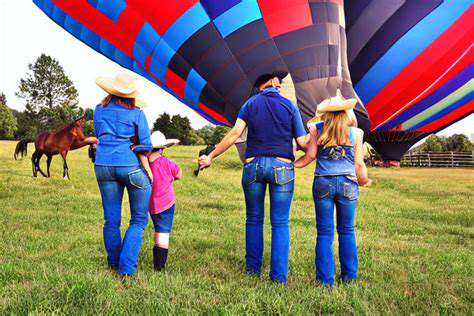
Choosing the Right Outdoor Location
When considering outdoor adventures for your puppy, Selecting the right location is crucial. Various environments can greatly influence the experience. A safe space, such as a fenced park, offers security for both you and your puppy. Additionally, consider places that are not too crowded, as excessive noise can overwhelm young dogs, making it hard for them to enjoy the day.
Safety factors should be paramount when picking a location. Look for areas free from dangerous plants or wildlife. Natural parks often have trails suited for hiking, but it's wise to check for any specific pet regulations. These can vary significantly by location, so always do your homework before heading out.
- Select a safe and enclosed environment.
- Consider the noise level and crowd size.
- Research local regulations regarding pets.
- Be aware of any natural hazards present in the area.
Engaging Activities to Strengthen Your Bond
Outdoor adventures are an excellent opportunity to engage in activities that foster a strong bond with your puppy. Simple games like fetch or hide-and-seek can enhance your puppy's training while making it enjoyable. These activities encourage physical exercise and mental stimulation, both of which are essential for a puppy’s health and wellbeing.
Consider integrating agility exercises into your outings. Setting up a small course with items you have at home, such as cones, tunnels, or hurdles, can be a fun way to challenge your puppy. It not only provides entertainment but also enhances their agility and coordination. Regular practice in a park or open space allows for consistent skill development.
Moreover, engaging in interactive play can help you better understand your dog's personality and preferences. It's through these shared experiences that a deeper connection is formed, making your bond stronger.
Packing Essentials for a Successful Outdoor Day
Preparation is key for a successful outdoor adventure with your puppy. Ensure you pack essential items ahead of time to avoid unnecessary stress. Always include water, a collapsible bowl, and poop bags. to maintain cleanliness during your outing. Staying hydrated is essential, especially during warmer months.
Consider bringing along treats or toys that your puppy particularly enjoys. These can serve as rewards during training sessions or distractions in busy environments. A first aid kit specifically designed for pets can also be a lifesaver in case of any minor injuries or emergencies.
Don't forget to also bring proper identification for your puppy, such as a collar with an ID tag and a microchip. Should your dog get lost, having these measures in place increases the chance of a swift recovery. Ultimately, a well-prepared outing not only ensures a fun experience but also contributes to your puppy's safety.
4. Sensory Experiences: Engaging the Senses
Understanding Your Puppy’s Senses
Puppies experience the world primarily through their senses. Their sense of smell is significantly more acute than that of humans, with an estimated 220 million scent receptors. This extraordinary olfactory capability allows them to detect scents that are completely undetectable to us. By understanding how your puppy perceives different environments through their senses, you can better engage them in activities that stimulate their natural instincts.
Puppies also rely heavily on their vision, which develops as they age. Initially, their eyesight is limited, but with time, they begin to perceive colors and understand depth better. Engaging activities that involve movement, such as fetch or agility training, can help enhance their visual skills and coordination. Combining activity with sensory stimulation lays a solid foundation for Socialization and Cognitive Growth.
Incorporating Taste into Playtime
Another essential sensory experience for puppies is taste. Incorporating different flavors into their training can transform mundane lessons into exciting adventures. Consider using various treats or food sources during games. This not only makes the activity enjoyable but also helps reinforce positive behaviors through the concept of taste rewards. Just ensure that the treats you use are healthy and safe for your puppy's development.
Sound Sensitivity and Socialization
The sensitivity of puppies to sound is another vital factor to consider during training and socialization. Their hearing is fully developed by about six weeks old, allowing them to respond to high-pitched sounds that would seem inaudible to humans. Exposing your puppy to a variety of sounds, such as gentle music or nature noises, helps them acclimate to the many auditory stimuli they'll encounter in everyday life. This practice is particularly helpful in preventing sound-related anxiety later on.
Additionally, using specific sounds during training can help associations form. For instance, the sound of a clicker can trigger a response if it’s consistently paired with a reward. This method is fundamental in positive reinforcement training and can greatly improve receptiveness in puppies.
Touch and Its Impact on Behavior
Touch is a critical sense for puppies, influencing their emotional development and social skills. Gentle petting and physical interaction during playtime not only foster trust but also establish emotional bonds. Various textures, such as soft toys or rubber chew items, can excite and engage your puppy during their exploration phase, allowing them to learn how to interact with different surfaces and materials.
Moreover, different forms of play that involve touch, like tug-of-war, can enhance both strength and coordination. It’s essential, however, to monitor the intensity and duration of these interactions to prevent overstimulation or aggression. Balancing these experiences helps your puppy develop appropriate social behaviors, making future interactions with people and other dogs more positive.
5. Daily Routines: Socialization on the Go
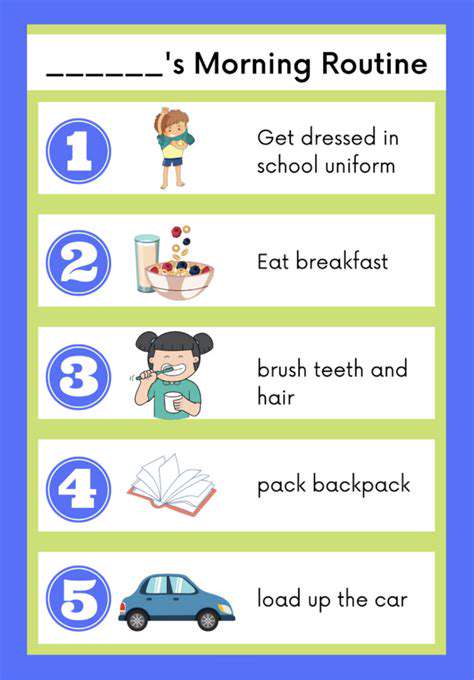
Understanding the Importance of Daily Socialization
Socialization is crucial for a puppy's development, and daily routines offer the perfect opportunity to enhance social skills. Daily interactions with people and other animals can dramatically reduce anxiety and fear in later life. Research shows that puppies exposed to various environments and stimuli are less likely to develop behavioral problems.
Moreover, a consistent routine helps puppies understand what to expect, fostering a sense of security. Incorporating regular socialization into their day will help them build confidence and learn appropriate behaviors, which are vital as they grow older.
Integrating Socialization into Walks
Walks provide a great opportunity for puppies to meet new people and other dogs. Take different routes regularly to expose your puppy to various sights, sounds, and experiences. This variation keeps the walking experience dynamic and engaging for your puppy.
- Choose busy streets or parks to introduce excitement.
- Allow your puppy to observe and interact with different environments.
- Encourage calm behavior by rewarding positive interactions.
Playdates: Bonding and Learning
Organizing regular playdates with other dogs can significantly enhance your puppy's social experience. It’s essential to choose well-matched playmates to facilitate positive interactions. Supervised play sessions help teach the puppy how to read cues from other dogs, effectively learning boundaries and communication.
Try to observe their play, so you can step in if interactions become too rough or overwhelming. Positive reinforcement during these interactions will aid in teaching your puppy preferred behaviors during social play.
Positive Reinforcement Techniques
Utilizing positive reinforcement is key in promoting desirable behaviors during socialization. Whenever your puppy displays calm and friendly behavior towards others, offer rewards immediately. Consistency in your rewarding will reinforce those behaviors over time, helping them understand what's expected during interactions with new friends.
Consider using clicker training or treats as cues during the socialization process. Utilizing these methods allows dogs to recognize and anticipate positive outcomes from friendly behaviors, ultimately leading to a well-adjusted pet.
Incorporating Games into the Routine
Games like fetch or hide-and-seek can play a dual role in providing fun and enhancing socialization. Involving other dogs in these games builds camaraderie and allows puppies to experience cooperative play. Engaging in group games can also ease the introduction to other pups, making it less intimidating for your dog.
Varying the games can keep them exciting and stimulate your puppy mentally. Moreover, this not only aids in their development but also strengthens your bond with them. It’s all about making learning fun!
Creating a Safe Social Environment
Ensuring your puppy is adequately prepared for socialization is vital for a positive experience. Make sure they are up-to-date on vaccinations and have a comfortable collar and leash. Choose environments that are low-stress and safe for your puppy to explore, helping mitigate any nervousness.
Moreover, opting for puppy classes can be immensely beneficial. These structured environments allow for monitored social interactions with other puppies, teaching essential skills while ensuring safety. Puppy classes also provide expert guidance and a sense of community for both you and your puppy.
